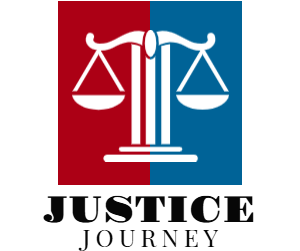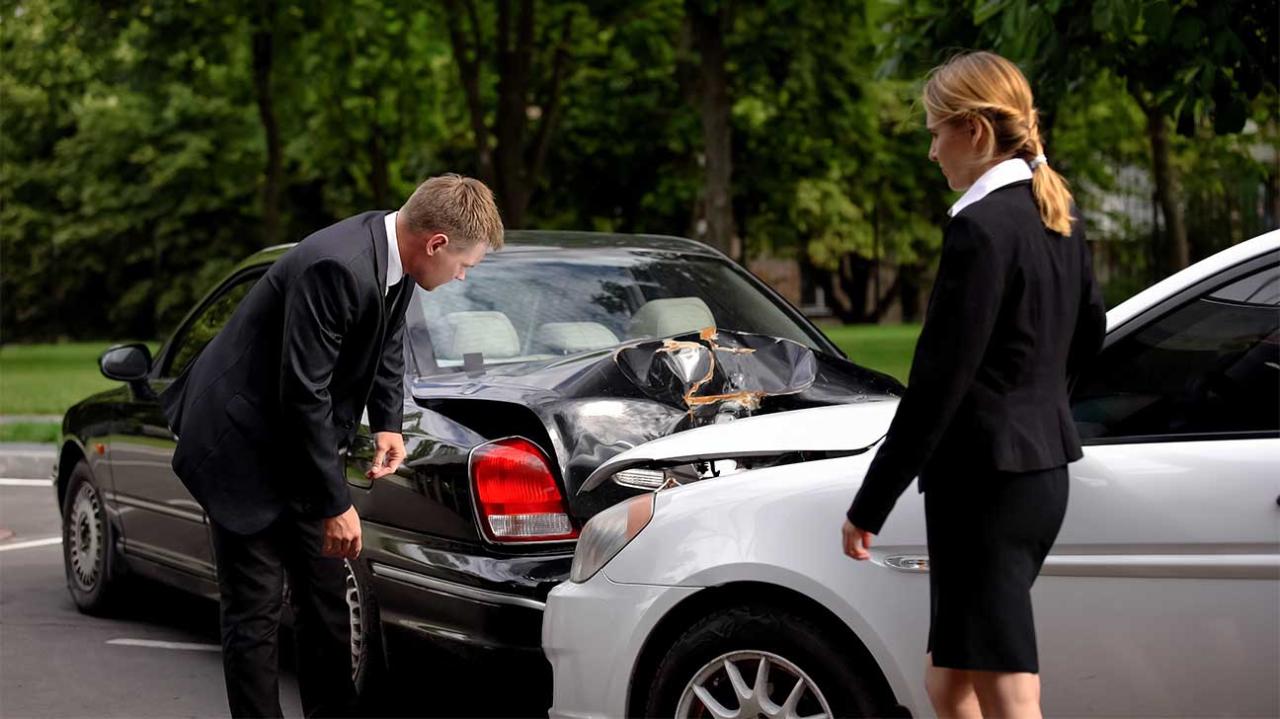Local car accident lawyers near me are essential for navigating the complexities of a car accident claim. After a car accident, you might feel overwhelmed and unsure of your rights. A skilled lawyer can provide the guidance and support you need to protect your interests and pursue the compensation you deserve.
Car accidents can cause physical injuries, emotional distress, and financial hardship. Dealing with insurance companies and navigating legal procedures can be daunting, especially when you’re already recovering from an accident. A local car accident lawyer can act as your advocate, handling all aspects of your case, from gathering evidence to negotiating with insurance companies.
Understanding the Need for Legal Representation
After a car accident, you may feel overwhelmed and unsure of what steps to take. Navigating the legal system and dealing with insurance companies can be complex and stressful, especially when you’re recovering from injuries. Hiring a car accident lawyer can provide you with the support and guidance you need to protect your rights and pursue fair compensation.
Benefits of Legal Representation
A car accident lawyer can offer several benefits, including:
- Expert Legal Knowledge: Car accident cases involve specific laws and regulations. An experienced lawyer understands these complexities and can navigate them effectively on your behalf.
- Negotiation Skills: Insurance companies are often motivated to settle claims for the lowest possible amount. A lawyer can negotiate with insurance adjusters to ensure you receive a fair settlement that reflects the full extent of your damages.
- Courtroom Experience: If your case goes to court, your lawyer will be prepared to advocate for your rights and present compelling arguments to the judge and jury.
- Case Management: Your lawyer will handle all aspects of your case, including gathering evidence, filing paperwork, and communicating with all parties involved.
Challenges Faced by Victims
Car accident victims often face numerous challenges, including:
- Dealing with Insurance Companies: Insurance companies may try to minimize your claim or deny your benefits altogether. A lawyer can help you understand your insurance policy and protect your rights.
- Navigating Legal Procedures: The legal system can be confusing and intimidating. A lawyer can guide you through the process and ensure you comply with all deadlines and requirements.
- Medical Bills and Lost Wages: Car accidents can lead to significant medical expenses and lost income. A lawyer can help you recover these costs and ensure you receive fair compensation.
How a Lawyer Can Advocate for Your Rights
A car accident lawyer can advocate for your rights in several ways:
- Investigating the Accident: Your lawyer will gather evidence, such as police reports, witness statements, and medical records, to build a strong case.
- Evaluating Your Damages: Your lawyer will assess the full extent of your injuries and losses, including medical expenses, lost wages, pain and suffering, and property damage.
- Negotiating with Insurance Companies: Your lawyer will negotiate with insurance companies on your behalf to reach a fair settlement.
- Filing a Lawsuit: If a settlement cannot be reached, your lawyer will file a lawsuit to pursue your claim in court.
Qualities of a Good Local Car Accident Lawyer: Local Car Accident Lawyers Near Me
After understanding the need for legal representation, you need to find the right lawyer to handle your car accident case. The best way to do this is to find a lawyer with the right experience, expertise, and qualities.
Experience and Expertise
It is crucial to find a lawyer who specializes in car accidents. A lawyer with a strong track record of success in car accident cases is more likely to understand the complexities of these cases and the specific laws that apply. You should ask potential lawyers about their experience handling car accident cases, including the types of cases they have handled and their success rate.
Communication Skills
Your lawyer should be able to communicate effectively with you, explain legal concepts in a clear and concise manner, and keep you informed about the progress of your case. A good lawyer will be patient and understanding, and they will take the time to answer your questions and address your concerns. Look for a lawyer who is a good listener and who is willing to explain things in a way that you can understand.
Reputation, Local car accident lawyers near me
A lawyer’s reputation is important. You can research a lawyer’s reputation by looking at online reviews, checking their bar association rating, and talking to other people who have used their services. You can also ask potential lawyers for references from past clients.
Understanding Local Laws
Car accident laws vary from state to state. It is essential to find a lawyer who is familiar with the laws in your state. This is especially important if you were involved in an accident in another state. A lawyer who is familiar with local laws will be able to navigate the legal system and ensure that your rights are protected.
The Initial Consultation
The initial consultation with a car accident lawyer is a crucial first step in navigating the legal complexities of your situation. It’s an opportunity to assess your case, understand your legal options, and determine if the lawyer is the right fit for you.
This meeting is designed to help you gain clarity, build trust, and make informed decisions about your legal journey.
Preparing for the Consultation
It’s essential to be prepared for the initial consultation to maximize its effectiveness. Here’s a checklist of things to do before your meeting:
- Gather Relevant Documentation: Bring all pertinent documents related to your accident, including the police report, medical records, insurance information, and any photos or videos of the accident scene.
- Write Down Your Questions: Prepare a list of questions you want to ask the lawyer. This ensures you cover all your concerns and receive clear answers.
- Artikel Your Goals: Be clear about your expectations and what you hope to achieve through legal representation. Do you want to seek compensation for medical expenses, lost wages, or pain and suffering?
Asking Insightful Questions
Asking insightful questions during the consultation will help you evaluate the lawyer’s expertise and determine if they’re the right fit for your needs. Consider asking:
- Experience with Car Accident Cases: Inquire about the lawyer’s experience handling cases similar to yours, including the types of settlements they’ve obtained for their clients.
- Fees and Payment Structure: Clarify the lawyer’s fees, including hourly rates, contingency fees, and any additional costs.
- Communication and Accessibility: Ask how the lawyer communicates with clients, how often you can expect updates, and how easily you can reach them.
Establishing Clear Communication
Open and honest communication is crucial during the consultation. Be upfront about your situation, your concerns, and your goals. This will help the lawyer understand your case and provide accurate guidance.
Understanding Fees and Approach
Discuss the lawyer’s fees and payment structure in detail. Ensure you understand how they charge for their services and what expenses are included. Ask about their approach to handling your case, including their negotiation strategies and litigation experience.
Gathering Evidence and Building a Case
The process of gathering evidence after a car accident is crucial for building a strong case and achieving a favorable outcome. This involves meticulously collecting and organizing all relevant information that supports your claim.
Gathering Evidence
Gathering evidence involves obtaining crucial documents and information that support your claim. This includes:
- Police Report: This official document contains details about the accident, including the date, time, location, and descriptions of the vehicles involved. It also records any citations issued and witness statements.
- Medical Records: Your medical records provide documentation of your injuries, treatment, and prognosis. They serve as proof of the severity of your injuries and the impact of the accident on your health.
- Witness Statements: Witness statements from individuals who saw the accident can provide valuable insights into what happened. They can corroborate your account and provide additional evidence to support your claim.
- Photos and Videos: Visual documentation of the accident scene, including damage to vehicles, skid marks, and road conditions, can be helpful in establishing liability.
- Vehicle Maintenance Records: Records of vehicle maintenance and repairs can help demonstrate that your vehicle was in proper working order before the accident.
Expert Witnesses
Expert witnesses play a vital role in providing specialized knowledge and opinions that can significantly strengthen your case.
- Accident Reconstructionists: These experts can analyze the accident scene and provide insights into the cause of the accident, the speed of the vehicles, and the impact forces involved.
- Medical Professionals: Medical professionals, such as doctors and therapists, can provide expert testimony regarding the nature and extent of your injuries, the treatment you received, and the long-term effects of the accident.
Building a Strong Case
Building a strong case involves strategically presenting the evidence you have gathered to support your claim. This involves:
- Establishing Liability: Your lawyer will focus on proving that the other driver was negligent and responsible for causing the accident. This may involve demonstrating that they violated traffic laws, were driving recklessly, or failed to take reasonable precautions.
- Quantifying Damages: Your lawyer will work to quantify the full extent of your damages, including medical expenses, lost wages, pain and suffering, and property damage. This involves providing documentation and expert testimony to support these claims.
- Negotiating with the Insurance Company: Your lawyer will negotiate with the insurance company on your behalf to secure a fair settlement. This involves presenting a strong case, advocating for your rights, and protecting your interests.
Negotiating with Insurance Companies
After an accident, the insurance company may try to settle your claim quickly for a low amount. A lawyer can help you understand your rights and negotiate a fair settlement.
Insurance companies are businesses that are in the business of making money. Their goal is to pay out as little as possible on claims. They have teams of adjusters who are trained to negotiate settlements with injured people. They use a variety of tactics to try to get you to settle for less than you deserve.
Finding a local car accident lawyer can be a stressful process, especially after an accident. You need someone who understands the legal complexities and can fight for your rights. When searching for legal help, it’s important to look for lawyers near me for car accidents, who specialize in this area of law. You can find qualified and experienced lawyers by searching for ” lawyers near me for car accidents ” online.
By choosing a local car accident lawyer who specializes in this field, you can ensure you have the best chance of getting the compensation you deserve.
Strategies Lawyers Use to Negotiate Settlements
A lawyer will use their knowledge of the law and their experience in negotiating with insurance companies to get you the best possible settlement. Here are some of the strategies they may use:
- Gather evidence: A lawyer will gather evidence to support your claim, such as police reports, medical records, and witness statements. This evidence will help to demonstrate the severity of your injuries and the amount of your damages.
- Negotiate with the insurance company: A lawyer will negotiate with the insurance company on your behalf. They will use their knowledge of the law and their experience in negotiating settlements to get you the best possible outcome.
- File a lawsuit: If the insurance company is not willing to negotiate a fair settlement, a lawyer can file a lawsuit on your behalf. This will force the insurance company to go to court and defend their position.
Common Insurance Company Tactics
Insurance companies often use tactics to try to get you to settle for less than you deserve. Here are some common tactics:
- Lowball offers: Insurance companies often make lowball offers in an attempt to get you to settle quickly. They may try to pressure you into accepting their offer by saying that it is the best they can do or that you will not get more if you go to court.
- Denying liability: Insurance companies may try to deny liability for the accident. They may claim that you were at fault or that the other driver was not insured. This is a common tactic used by insurance companies to avoid paying out on claims.
- Delaying tactics: Insurance companies may use delaying tactics to try to wear you down. They may delay in processing your claim, refuse to provide you with information, or make it difficult for you to contact them.
Countering Insurance Company Tactics
There are ways to counter these tactics. Here are some tips:
- Do not speak to the insurance company without a lawyer present: The insurance company may try to get you to say something that could hurt your case. It is best to have a lawyer present during any conversations with the insurance company.
- Do not sign anything without a lawyer reviewing it: Insurance companies may try to get you to sign documents that release them from liability or limit your rights. It is important to have a lawyer review any documents before you sign them.
- Keep a record of all communications with the insurance company: This includes emails, letters, and phone calls. This documentation will be helpful if you need to file a lawsuit.
Filing a Claim and Pursuing Legal Action
If you are unable to reach a settlement with the insurance company, you may need to file a lawsuit. A lawyer can help you with this process. They will file the necessary paperwork and represent you in court.
The process of filing a lawsuit can be complex and time-consuming. It is important to have a lawyer on your side who can help you navigate the legal system.
Finding a local car accident lawyer can be a daunting task, especially when you’re dealing with the aftermath of a crash. It’s important to find someone experienced and knowledgeable in this area of law. You can search online for “lawyers for car accidents near me” lawyers for car accidents near me to find a qualified attorney in your area.
A good local car accident lawyer will understand the nuances of your state’s laws and fight to get you the compensation you deserve.
Understanding Legal Options and Procedures
After gathering evidence and building your case, you need to understand the legal options available to you. Your attorney will guide you through these options and help you choose the best course of action for your specific situation.
Filing a Claim
When you file a claim, you are essentially asking the at-fault driver’s insurance company to compensate you for your injuries and damages. This is typically the first step in resolving a car accident claim.
- The process: You will need to submit a claim form to the insurance company, providing details about the accident and your injuries. The insurance company will investigate your claim and determine if they are liable.
- Deadlines: There are strict deadlines for filing claims, so it’s important to act quickly.
- Outcomes: If the insurance company approves your claim, you will receive compensation for your medical bills, lost wages, and other damages. However, the insurance company may try to settle your claim for less than what you deserve.
- Risks: If the insurance company denies your claim or offers you a low settlement, you may need to pursue other legal options.
Pursuing a Lawsuit
If you cannot reach a settlement with the insurance company, you may need to file a lawsuit. This is a more formal process that involves taking your case to court.
- The process: You will need to file a complaint with the court, and the at-fault driver will be served with a copy. The case will then proceed through discovery, where both sides gather evidence and prepare for trial.
- Deadlines: There are strict deadlines for filing lawsuits and responding to motions.
- Outcomes: If you win your lawsuit, you will receive compensation for your injuries and damages. However, if you lose, you may have to pay the defendant’s legal fees.
- Risks: Pursuing a lawsuit is a lengthy and expensive process, and there is no guarantee of success.
Engaging in Mediation
Mediation is a process where a neutral third party helps the parties involved in a dispute reach a settlement. This can be a good option if you and the other party are willing to compromise.
- The process: A mediator will meet with both parties and facilitate discussions. They will help the parties identify their interests and work towards a mutually acceptable solution.
- Outcomes: If successful, mediation can lead to a faster and less expensive resolution than a lawsuit.
- Risks: Mediation is not always successful, and you may still need to pursue other legal options if you cannot reach an agreement.
Common Car Accident Injuries and Their Impact
Car accidents can result in a wide range of injuries, some of which can have long-lasting effects on the victim’s physical, emotional, and financial well-being. Understanding the common injuries and their impact is crucial for both victims and their legal representatives.
Whiplash
Whiplash, a common injury in rear-end collisions, occurs when the head is suddenly jolted backward and forward, causing damage to the muscles, ligaments, and tendons in the neck. It can lead to persistent pain, headaches, dizziness, and difficulty concentrating.
Head Trauma
Head trauma, which can range from mild concussions to severe brain injuries, can result from direct impact or sudden deceleration. The severity of the injury determines the long-term effects, which can include cognitive impairment, memory problems, personality changes, and chronic headaches.
Spinal Cord Injuries
Spinal cord injuries are serious and often life-altering. These injuries can result in paralysis, loss of sensation, and bowel and bladder dysfunction. The extent of the injury determines the level of impairment and the potential for recovery.
Other Common Injuries
Car accidents can also lead to a variety of other injuries, including:
- Broken bones
- Soft tissue injuries
- Internal bleeding
- Burns
The Impact of Car Accident Injuries
The impact of car accident injuries can be significant and far-reaching, affecting various aspects of a victim’s life. These impacts include:
- Physical Pain and Disability: Injuries can cause chronic pain, limited mobility, and difficulty performing daily tasks.
- Emotional Distress: Trauma from a car accident can lead to anxiety, depression, post-traumatic stress disorder (PTSD), and other mental health issues.
- Financial Hardship: Medical expenses, lost wages, and rehabilitation costs can create significant financial burdens.
- Reduced Quality of Life: Injuries can significantly impact a victim’s ability to work, participate in leisure activities, and enjoy their daily life.
The Role of a Lawyer
A lawyer can play a vital role in helping car accident victims navigate the complexities of medical treatment and insurance claims.
- Negotiating with Insurance Companies: Lawyers can help victims negotiate with insurance companies to ensure they receive fair compensation for their injuries and losses.
- Protecting Client Rights: Lawyers can ensure that clients’ rights are protected and that they are not taken advantage of by insurance companies.
- Maximizing Compensation: Lawyers can help victims maximize their compensation by identifying all potential sources of recovery, including medical expenses, lost wages, pain and suffering, and future economic losses.
- Providing Legal Advice: Lawyers can provide legal advice and guidance throughout the entire process, helping victims understand their options and make informed decisions.
The Importance of Seeking Medical Attention
After a car accident, your health should be your top priority. Even if you feel fine, it’s essential to seek medical attention immediately. This is because some injuries, like whiplash or concussions, may not be immediately apparent but can worsen over time.
It’s crucial to remember that your health is paramount, and taking care of it is the first step toward ensuring a successful outcome in your case.
Documenting Injuries and Treatment
Proper documentation of your injuries and medical treatment is crucial for building a strong case. This includes:
- Seeking immediate medical attention from a qualified healthcare professional.
- Following all recommended treatments and attending all scheduled appointments.
- Keeping a detailed record of all your symptoms, medications, and medical expenses.
- Preserving all medical records, including doctor’s notes, test results, and prescriptions.
This detailed documentation will provide irrefutable evidence of your injuries and the extent of your medical treatment, which is vital for establishing the severity of your claim and securing fair compensation.
Potential Consequences of Delaying Medical Care
Delaying medical care after a car accident can have several negative consequences:
- Aggravated Injuries: Some injuries, such as whiplash or concussions, can worsen over time if not treated promptly. Delaying medical attention can lead to a more severe condition and potentially longer recovery time.
- Reduced Compensation: Insurance companies may argue that your injuries are not as serious as they claim if you delayed seeking medical care. This can lead to a reduction in the compensation you receive.
- Difficulty Proving Causation: If you delay seeking medical care, it may be difficult to prove that your injuries were directly caused by the car accident. This can make it harder to win your case.
Preventing Future Accidents
No one wants to be involved in a car accident, and unfortunately, many accidents are preventable. By understanding the common causes of accidents and adopting safe driving practices, you can significantly reduce your risk of being involved in a collision.
Common Causes of Car Accidents
Many factors contribute to car accidents, and it’s important to be aware of them to avoid them.
- Distracted Driving: This is a major cause of accidents. Using cell phones, texting, eating, or adjusting the radio can take your attention away from the road, leading to dangerous situations.
- Speeding: Exceeding the speed limit reduces your reaction time and increases the severity of an accident. Speeding is often a contributing factor in fatal crashes.
- Driving Under the Influence (DUI): Alcohol and drug impairment significantly affect judgment, coordination, and reaction time, making driving extremely dangerous.
- Drowsy Driving: Fatigue can be just as dangerous as driving under the influence. When you’re tired, your reaction time slows, and you may have difficulty staying focused on the road.
- Aggressive Driving: Tailgating, weaving in and out of traffic, and road rage can all contribute to accidents. It’s important to drive defensively and avoid confrontations.
- Adverse Weather Conditions: Rain, snow, fog, and ice can make roads slippery and reduce visibility, increasing the risk of accidents.
- Mechanical Failures: Problems with your vehicle, such as brake failure or tire blowouts, can lead to accidents. Regular maintenance is essential for ensuring your vehicle is safe to drive.
Safe Driving Practices
Safe driving habits are crucial for preventing accidents.
- Avoid Distractions: Put your phone away, refrain from texting or eating while driving, and focus your attention on the road.
- Obey Traffic Laws: Always follow the speed limit, stop signs, and traffic signals.
- Be Aware of Your Surroundings: Scan the road ahead and be aware of other vehicles, pedestrians, and cyclists.
- Maintain a Safe Distance: Leave enough space between you and the vehicle in front of you to allow for safe braking.
- Use Your Turn Signals: Signal your intentions clearly to other drivers, and anticipate the actions of other vehicles.
- Avoid Aggressive Driving: Don’t tailgate, speed, or engage in road rage.
- Be Prepared for Emergencies: Keep your vehicle in good working order, and be prepared for unexpected situations.
Defensive Driving Techniques
Defensive driving is about anticipating potential hazards and taking steps to avoid them.
- Scan the Road: Look ahead, to the sides, and behind you to anticipate potential hazards.
- Maintain a Safe Following Distance: The “three-second rule” is a good guideline: choose a fixed object and count three seconds as the car in front of you passes it. If you pass the object before you finish counting, you are too close.
- Be Aware of Blind Spots: Check your mirrors and use your turn signals when changing lanes to avoid collisions.
- Yield to Other Vehicles: Be courteous and allow other drivers to merge or change lanes safely.
- Be Prepared to Stop Quickly: Keep your foot hovering over the brake pedal and be ready to react to sudden situations.
- Avoid Distractions: Put your phone away, refrain from texting or eating while driving, and focus your attention on the road.
The Importance of Awareness and Responsibility
Being a safe driver is about more than just following the rules. It’s about being aware of your surroundings, anticipating potential hazards, and taking responsibility for your actions on the road. By being mindful of your driving habits and practicing defensive driving techniques, you can significantly reduce your risk of being involved in a car accident.
Facing a car accident can be a challenging experience, but having a skilled local car accident lawyer by your side can make a significant difference. They can provide legal expertise, negotiate on your behalf, and ensure your rights are protected. Don’t hesitate to seek legal assistance if you’ve been involved in a car accident. A lawyer can help you understand your options, pursue the compensation you deserve, and navigate the legal process with confidence.







